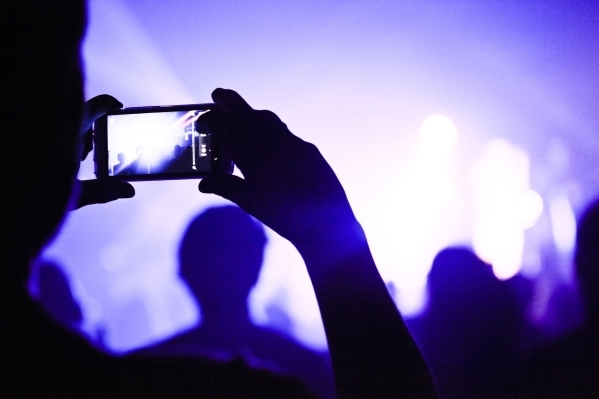Smartphone cameras make us all Big Brother
They're, collectively, an all-seeing eye, catching people in places they shouldn't be and doing things they probably shouldn't be doing and then showing it to the entire world.
Forget Big Brother. Smartphone cameras make all of us big brothers, turning us into equal parts private detective, nanny, snitch and busybody.
Yet, it's a lesson many still haven't learned. From athletes embarrassed by photos of nightclub visits to celebrities suffering photos depicting them as unattractively as possible to just normal people captured in an unfortunate or embarrassing moment, the ubiquity of smartphone cameras establishes whole new parameters as to what can, and can't, be assumed to be private.
Just over the past few days, for example, a Pennsylvania man who directed racist rants at anti-fracking protesters was fired not long after the video capturing his diatribe was uploaded to YouTube. Meanwhile, more than one athlete has discovered his presumably private night of entertainment at a nightclub to be digitally compromised by a fellow partyer's cellphone camera.
Chalk it up, first, to "naivete," says Jon Castagnino, social media sports coordinator at the Hank Greenspun School of Journalism and Media Studies at the University of Nevada, Las Vegas and a former sports reporter and anchor at KVVU-TV, Channel 5.
Whether they realize it or not, Castagnino says, it would now be "naive" for a high-profile athlete to party in Las Vegas "and not think you're going to be found out."
Add to that the reality that cellphones have become a routine part of daily life for a generation or two of younger people. Many younger people, Castagnino says, "may not get the consequences of what they're doing yet.
"It's common now for them to live through their Instagram photos. They live through their phones. And, again, that's where the naivete comes in. They're not thinking about the repercussions."
A legal rule of thumb holds that nobody should expect privacy when they're in a public place. That, Castagnino notes, applies not just to athletes or celebrities, but to everybody.
In fact, he says, "when I'm out in public, just as a journalist, it's not worth it for me to have a drink of alcohol. In this day and age ... it's not worth the risk of getting called out on social media."
Granted, digital embarrassment can be self-inflicted. Maria Schellhase, a school of business administration faculty member at the College of Southern Nevada, notes that "many of the young people I deal with on a day-to-day basis have an affinity for their cellphones and for taking selfies and for documenting shots of themselves when they're not really thinking straight, to put it nicely."
And sometimes, she says, "that leads to remorse afterwards."
Among the consequences of digital oversharing can be loss of a potential job. Employers today "often do a background search, and they're looking at your social media pages," Schellhase says. "If you're scantily clad on your page or show yourself partying up a storm, they might think twice about hiring you."
But digital embarrassment also can be the result of doing something in a presumably public place that later comes back to haunt you. Today, just about everybody is packing a phone, and social media is filled with average people whose images were captured and, for one reason or another, uploaded for the world to see.
"It's not just paparazzi," Schellhase says. "We need to have a little bit of a reality check. My expectations (of privacy) may not be reality anymore."
— Read more from John Przybys at reviewjournal.com. Contact him at jprzybys@reviewjournal.com and follow @JJPrzybys on Twitter.

















